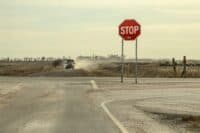 The Commerce Department is delivering some awful news on the second quarter preliminary Gross Domestic Product in the U.S. GDP is coming in at a preliminary second quarter level of a mere 1.3%. Dow Jones had targets of 1.8% and Bloomberg had an estimate of 1.9% on last look. If you put in the PCE Price Index that came in at 3.1% versus a Q1-2010 reading of 3.9%.
The Commerce Department is delivering some awful news on the second quarter preliminary Gross Domestic Product in the U.S. GDP is coming in at a preliminary second quarter level of a mere 1.3%. Dow Jones had targets of 1.8% and Bloomberg had an estimate of 1.9% on last look. If you put in the PCE Price Index that came in at 3.1% versus a Q1-2010 reading of 3.9%.
To make matters worse, the first quarter was revised down to only +0.4% from 1.9%. The final-final Q4-2010 GDP was revised to 3.0% from 2.9%.
The big issue is consumer spending, which comprises the largest portion of GDP, and it was up a mere 0.1% from April to June. What is interesting is that so many retail sales figures have been coming in well, but the effect of higher food and gas prices for much of the first half of the second quarter may have skewed this data. Still, there is just no way to sugar coat this report. You can add the woes of Europe and the woes of Japan as India and China keep putting on the inflationary brakes, but nothing will make the number sound off in a good way.
SOme economists point to a double-dip recession. Technically the time of recovery has already gone on beyond a definition of a double-dip recession. When you compile all of the business and consumer uncertainty over the debt ceiling and budget debate in Washington D.C., this sets up a very negative tone for the third quarter. The fact that we are starting to see new rounds of layoffs from major corporations as they claim “restructuring moves” is just one more item that is adding salt to this cut. 2012 is also an election year and we are already seeing how ugly the fighting is between the two political parties.
The long and short is that this is not the set-up for a double-dip recession. This is the set-up for what will feel like a new recession all over again. In a neutral scenario we would call it a “recessionless recession.” If the politicians do truly create a default scenario and do drive up borrowing costs from the massive waves of secondary downgrades that will occur, then that “recessionless recession” will end up as a new recession.
JON C. OGG
Thank you for reading! Have some feedback for us?
Contact the 24/7 Wall St. editorial team.


